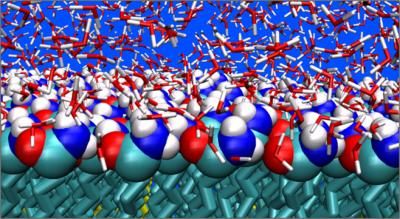Chemical tag to track proteins in cells
Advertisement
Native Chemical Ligation (NCL) is a reaction that takes place between a molecule containing a thioester group and a polypeptide that has a cysteine amino acid at its N-terminal. The reaction takes place in aqueous solution and mild conditions and is completely specific which ensures that a chemical tag is introduced at a single site.
NCL has inspired Robin Leatherbarrow and colleagues at Imperial College London, UK, to chemically tag a protein molecule using the enzyme protease 3Cpro from the Foot-and-Mouth Disease Virus. 3Cpro hydrolyses proteins at a specific recognition sequence. By introducing this recognition sequence followed by a cysteine residue, and then the remainder of the protein, Leatherbarrows' team has found that the 3Cpro efficiently cuts the material to leave an N-terminal cysteine at the end of the desired protein. The target protein can then be tracked in cells by using a fluorescent label.
The work was carried out as part of the EPSRC-funded Doctoral Training Centre programme of the Chemical Biology centre at Imperial College London which seeks answers to biological questions using physical sciences tools. 'One challenge of studying complex protein mixtures is to label proteins in such a way that the biological function is not compromised' says Leatherbarrow.
'Our NCL/3Cpro strategy is a useful addition to the Chemical Biologist's toolbox, providing facile, selective and generic labelling sytems', says Leatherbarrow. The generic nature of the technique suggests that it can be applied to a range of labelling problems and could lead to semi-synthetic proteins being developed.
Original publication. Robin J. Leatherbarrow et al., Chem. Commun., 2008
Other news from the department science

Get the chemical industry in your inbox
By submitting this form you agree that LUMITOS AG will send you the newsletter(s) selected above by email. Your data will not be passed on to third parties. Your data will be stored and processed in accordance with our data protection regulations. LUMITOS may contact you by email for the purpose of advertising or market and opinion surveys. You can revoke your consent at any time without giving reasons to LUMITOS AG, Ernst-Augustin-Str. 2, 12489 Berlin, Germany or by e-mail at revoke@lumitos.com with effect for the future. In addition, each email contains a link to unsubscribe from the corresponding newsletter.





























































